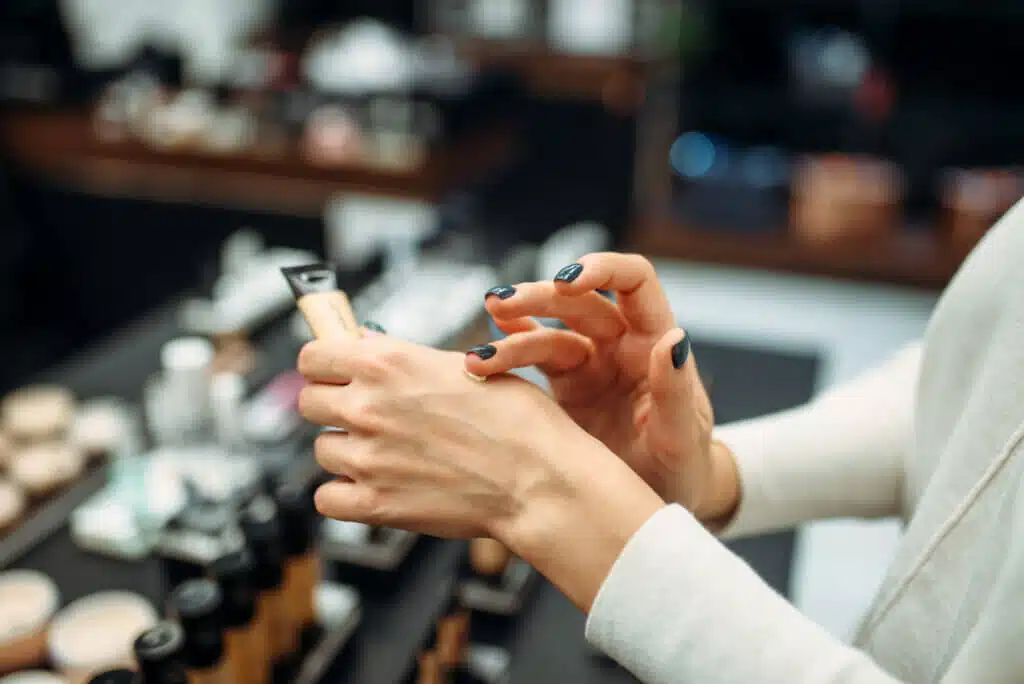The European Union (EU) has been regulating the cosmetics industry since 1976 with the EU Cosmetics Regulation. This regulation, continuously updated to incorporate scientific advancements and industry trends, sets a standardized safety and quality benchmark for cosmetics in the EU.
The most crucial update in 2013 amplified product labeling requirements and strengthened consumer health protection measures. The following sections delve into the particulars of the EU Cosmetics Regulation, its benefits, and implications for cosmetic businesses.


What are the EU regulations for cosmetics?
The European Union (EU) has a comprehensive set of regulations in place to ensure the safety and quality of cosmetic products. Known as the EU Cosmetics Regulation, it was established in 1976 and has been updated several times to reflect the advances in the industry. The most recent revision in 2013 enhanced requirements for product labeling and consumer health protection.
The key EU regulations related to cosmetics include:
Regulation (EC) No 1223/2009
This is the main framework for finished cosmetic products in the EU. It enforces safety standards and provides a legal structure for businesses.
Regulation (EU) No 655/2013
This outlines criteria for justifying claims about cosmetic products to ensure transparency and honesty in product marketing.
Regulation (EC) No 1907/2006 (REACH)
Known as REACH, it addresses the production and use of chemical substances, and their potential impacts on human health and the environment.
Regulation (EC) No 1272/2008 (CLP)
This pertains to the classification, labeling, and packaging of substances and mixtures to identify potentially hazardous properties.
Regulation (EU) 2017/745 on Medical Devices (MDR)
Though not a direct cosmetic regulation, products that are at the intersection of cosmetics and medical devices might fall under this regulation.
Commission Regulation (EU) No 1004/2014
This amends Annex V to Regulation (EC) No 1223/2009, addressing the use of specific substances like Triclosan.
Compliance with these regulations is mandatory. Non-compliance could result in significant legal consequences. Platforms like Wonnda can help connect businesses with manufacturers who strictly comply with these regulations.
Benefits of the EU Cosmetics Regulation
The EU Cosmetics Regulation standardizes safety and quality norms across the EU. This provides consumers the confidence that the products they purchase, irrespective of their origin within the EU, meet high safety and quality standards. This is particularly important for those with sensitive skin or allergies, as all cosmetic products must undergo rigorous testing for potential irritants or allergens.
Moreover, the regulation mandates appropriate labeling of cosmetic products, providing clear and accurate information about ingredients and potential risks. This helps consumers make informed decisions and prevents the sale of counterfeit or adulterated products.
What the EU Cosmetics Regulation Means for Your Business
For businesses, complying with the EU Cosmetics Regulation implies adhering to specific rules when producing and selling cosmetic products. This includes ensuring product safety and quality, appropriate labeling with accurate information, and maintaining detailed records of production and distribution processes.
Understanding and complying with the regulation is vital for a business’s operations’ success and legitimacy. It also offers a significant advantage: the opportunity to collaborate with platforms like Wonnda, which helps businesses find compliant manufacturers. This helps in avoiding risks and penalties while taking your business to the next level through private label or contract manufacturing.


The Impact of EU Cosmetics Regulation on Non-European Businesses
For non-European businesses interested in expanding into the EU market, it’s vital to fully comprehend the EU Cosmetics Regulation and its implications. The regulation applies to all cosmetic products sold within the EU, regardless of where the manufacturing takes place. Consequently, non-European businesses need to adhere to the same set of rules and standards as European ones.
This means that any cosmetic product you plan to distribute in the EU market needs to comply with safety standards, be appropriately labeled, and rigorously tested for potential allergens or irritants. Moreover, it’s necessary to nominate a European Responsible Person (RP) who will be held accountable for product compliance and safety.
Failing to comply with the EU Cosmetics Regulation can result in legal action, heavy fines, and a damaged brand reputation. Therefore, non-European businesses must ensure they are well-versed with the EU regulations and adapt their practices accordingly. Utilizing platforms like Wonnda can ease this process by connecting businesses with manufacturers that strictly adhere to these EU regulations.
Steps to Ensure Your Cosmetic Products are EU Compliant
Complying with the EU Cosmetics Regulation is not a one-time process. It involves several stages and continuous monitoring to ensure your cosmetic products align with the standards. Here’s a simplified guide to help you achieve compliance:
1. Product Formulation and Safety Assessment: The regulation requires that all cosmetic products be safe for human health when used under normal or reasonably foreseeable conditions. Therefore, your product formulation should exclude any substances prohibited by the EU. Additionally, each product must undergo a safety assessment by a qualified professional.
2. Correct Labeling: Cosmetic products need to be appropriately labeled with clear and accurate information. This includes details like the list of ingredients, the shelf-life of the product, any special precautions to be observed in use, the function of the cosmetic product, and more.
3. Product Information File (PIF): Businesses must create and maintain a Product Information File (PIF) for every cosmetic product they sell. This file includes detailed information about the product, such as its formulation, safety assessment, data on any animal testing performed, and more.
4. Designating a Responsible Person (RP): A Responsible Person (RP), who can be a natural or legal person, must be designated within the EU. This person is responsible for ensuring regulatory compliance and is the primary point of contact for regulatory authorities.
5. Notification to the European Commission: Before placing a new cosmetic product on the EU market, the Responsible Person must submit a notification to the European Commission via the Cosmetic Product Notification Portal (CPNP).
To simplify the process of compliance, businesses can partner with platforms like Wonnda. They can provide you with access to manufacturers who are familiar with the requirements of the EU Cosmetics Regulation, helping to ensure that your products meet the necessary standards and legal obligations.
Navigating the EU Cosmetics Industry with Wonnda
Breaking into the European cosmetics market, while promising, can be daunting due to the rigorous EU Cosmetics Regulation. This is where Wonnda, a dedicated platform for white-label, private-label, and contract manufacturing, can simplify your journey. It connects your business with compliant manufacturers, minimizing regulatory risks and penalties.
By entrusting Wonnda with the task of finding the right production partner, you can focus on the creative aspects of your brand. Your dream of launching a private label or upgrading your business through contract manufacturing in Europe can be realized without the regulatory hassle. With Wonnda, you’re not just signing up for a service; you’re aligning your business with industry standards and protecting both your brand and your consumers. Begin your journey today—fill out the form to start working with Europe’s top manufacturers.